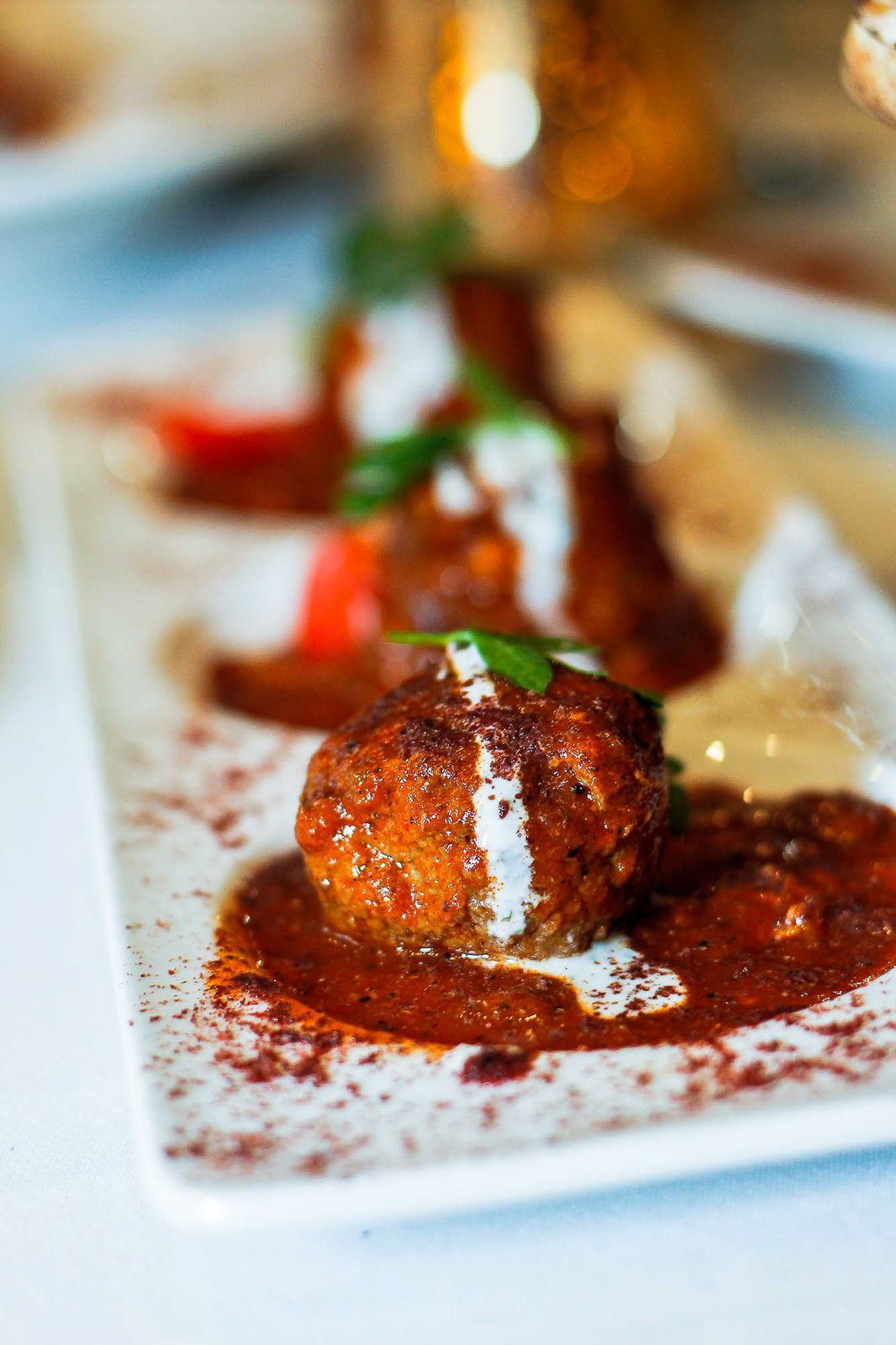
Photography by Kelsey Shoemaker
Matt Pikar can’t talk about food without slipping into stories of travel: exploring the Prague countryside to observe where locals eat, biting into raw potatoes in Spain, learning to cook kebabs after coming to the United States as a refugee.
“Food is the bridge to the cultures,” says Pikar, who is relaxed and talkative several hours before his restaurant, Nora, opens for Thursday night dinner service.
Born and raised in Kabul, Afghanistan, he learned how to cook from his mother, who measured in pinches and handfuls rather than teaspoons and cups. He never attended a culinary school and the instinctual approach has stuck with him.
And it’s working.
His first restaurant, Afghan Grill, opened in Washington D.C. at a time when no one knew about Afghan food, but after the 9/11 attacks, the cuisine began gaining attention.
“Some people hated us, some people loved us and were supporters,” Pikar says. “Then after 9/11, the soldiers who were in Afghanistan had a very good experience with food. They tried to learn, they tried to cook it and eat it… (Afghani food) became popular.”
In 2007, he moved to Dallas and opened Afghan Grill on Preston Road, before jumping over to Greenville Avenue in 2012 to open Nora, named after his then three-month-old daughter.
“It was a gift to her,” Pikar says.
In 2019, Nora moved to Bishop Arts, but the jump to Oak Cliff was initially difficult because people were unfamiliar with Afghan cooking. Pikar would roam the dining area to speak with customers who may not be familiar with the flavors on the menu.
He often joked with customers, saying that if they tried a dish and didn’t like it he wouldn’t charge them, but if they tried it and liked it, he would charge them double.
“It’s so hard to go try foreign food and it’s only 5% or 10% (of people) who do. It’s not a burger, it’s not Tex-Mex. People in Texas grow with that kind of food, and for them it’s very difficult to go sit down at a restaurant from a different nation or different area to try because they are afraid,” he says. “And I can believe it. If I grew up with rice, I don’t want to go eat different rice.”
A Muslim restaurant, there is no pork on the menu. The marinated chicken and yogurt is recommended to anyone who may be unsure how to approach Middle Eastern flavors and ingredients.
Pikar prides himself on his food preparation methods, which he says are becoming a lost art. While the lamb kebab is one of the most popular dishes at Nora, and throughout the Middle East, he finds most people do not know how to properly clean and prepare the meat.
And the saffron rice, cooked with lamb broth, “takes hours” to make properly.
“I could challenge any chef for the right cooking of rice, and the right spices,” Pikar says. “It’s the best rice, (cooked) how it should be done in the world. You go to Dubai, and (the flavors) have become famous.”
Some of the most expensive spices in the world, saffron, cardamon and pine nuts, are staples of the recipes. He wants to show off exactly how special Afghan food can be.
“Any cuisine could be a high-end and upscale restaurant if you choose the (best) food. It’s shocking for a lot of people,” Pikar says. “They only hear Afghanistan, but when they come to see us they say ‘Wow, I didn’t know it was Afghan restaurant.’ It makes a difference. It makes us feel good.”





